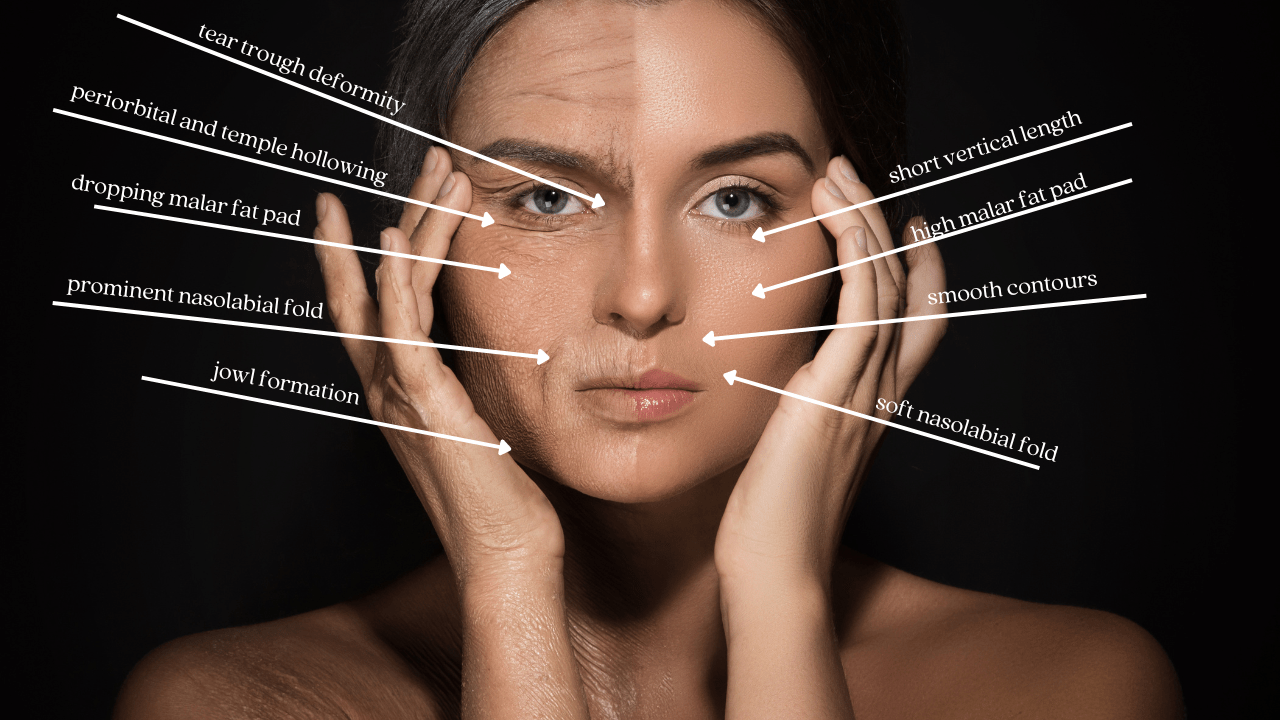What happens to the cheeks as we age?
As we get older, several changes occur in our midface that create a more aged appearance. We lose elasticity and collagen in the skin, which causes skin to sag. The fat pads in the face deflate and descend and our facial skeleton gets smaller as bone reabsorbs over time. This descent creates deeper folds and jowls. The midface is considered the area of the face between the lower eyelid and lips.
The “apple” of the cheek or malar fat pad diminishes and descends as we age and creates a longer, hollower appearing lower eyelid as well as deeper nasolabial folds. We also lose fat in the cheeks which can create a more skeletal looking appearance over time. Additionally, because we have lost elasticity in the skin, the fat pads that once sat high and tight descend and create jowls as well as deeper folds around the mouth.

What treatments do we have for the midface?
There are several treatment options to rejuvenate the midface depending on each individual’s anatomy.
Lower Eyelid Hollow
For hollow lower eyelids, we can treat hollowing with either filler or fat grafting. Fat grafting or fat transfer is a procedure that can be done in the office where fat is liposuctioned from the abdomen, processed into a buttery consistency, and then sterilely injected into the face as a “permanent” and natural filler to replace the volume that was lost.
Lower Eyelid Bags
For lower eyelids with “bags”, this often has to be treated with a combination of lower blepharoplasty surgery and volume replacement. Therefore, we perform a blepharoplasty or eyelid lift to remove the excess fat and transfer it or replace it in the right location to create a more rejuvenated appearance and smoother junction to the cheek.

Before Surgery and Fat Grafting

After Surgery and Fat Grafting
Cheek volume loss and Descent
For cheek volume loss and descent, the correct treatment really depends on the person. For individuals with volume loss, but good skin elasticity, volume replacement with artfully placed hyaluronic acid filler or fat grafting can be a great solution with either no to minimal downtime. For patients with moderate volume and skin elasticity loss, a combination approach may be needed. A less invasive approach would be using fillers and radiofrequency skin tightening devices such as Profound or Pixel 8 to improve the midface. However, for patients with advanced volume and skin elasticity loss, surgical correction with a deep plane midface facelift or a full facelift may be warranted in order to lift and reposition the tissues.
There are several options that range from in office procedures with no downtime to surgical correction depending on the need. It is important to discuss these options with your facial plastic surgeon to determine which option is right for you!






